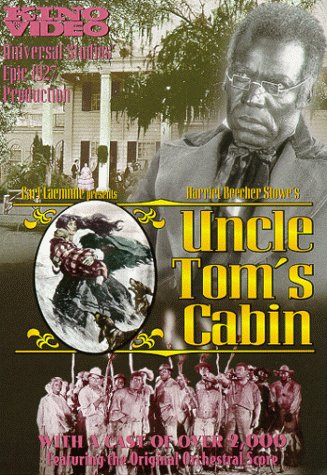Description
An earnest attempt to depict the harsh realities of slavery while lamenting the passage of the idealized South, Uncle Tom’s Cabin is an extravagant historical drama and, at a cost of $1.8 million, was one of the most expensive films of the silent era. Since its publication in 1852, Harriet Beecher Stowe’s abolitionist novel had found enormous success (reportedly second in sales only to the Bible), with epic stage productions appearing that same year, barnstorming across America almost continuously for 75 years. Margarita Fisher stars as Eliza, a fair-skinned servant who fled from the security of a Kentucky plantation when her young son and her dignified protector, Uncle Tom (James Lowe), are sold to a rival landowner. In the course of her Dickensian struggles, she experiences a side of indentured servitude beyond her worst fears, culminating in her arrival at the swampy lair of the murderous Simon Legree (George Siegmann). But the most memorable sequence, by far, is Eliza’s fight to freedom across a treacherous ice floe (a staple of the many stage production, which D.W. Griffith shamelessly borrowed for his 1920 film Way Down East). Although some of the film’s characterizations may appear derogatory to modern audiences, the film was considered groundbreaking for its sympathetic treatment of African-Americans caught in the turbulent nightmare of slavery. Director Harry Pollard emphasizes the horror of slavery with scenes of heart-wrenching drama and brutal violence — as Eliza hysterically chases the wagon which carries away her child, as Uncle Tom boldly defies the lashes of his tormentor (hardly the weak-willed persona his name has since come to connote). Available for the first time on disc, Uncle Tom’s Cabin is a fascinating bridge between the 19th Century barnstorming theatrical tradition and the new medium and freedom of the feature film




Reviews
There are no reviews yet.